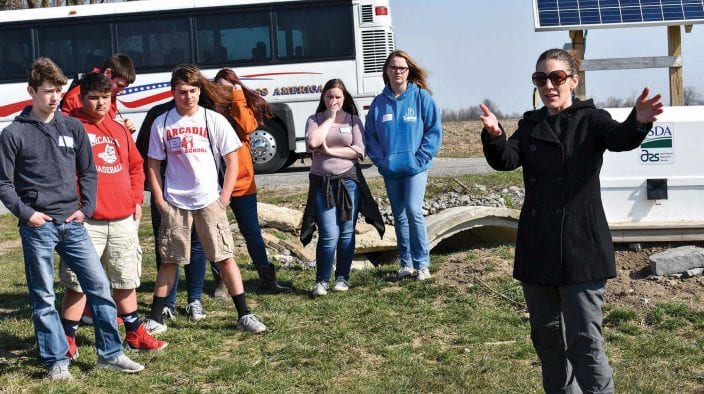Applications for Ohio Farm Bureau Health Plans now available
Members have three ways to apply: contacting a certified agent, calling 833-468-4280 or visiting ohiofarmbureauhealthplans.org.
Read More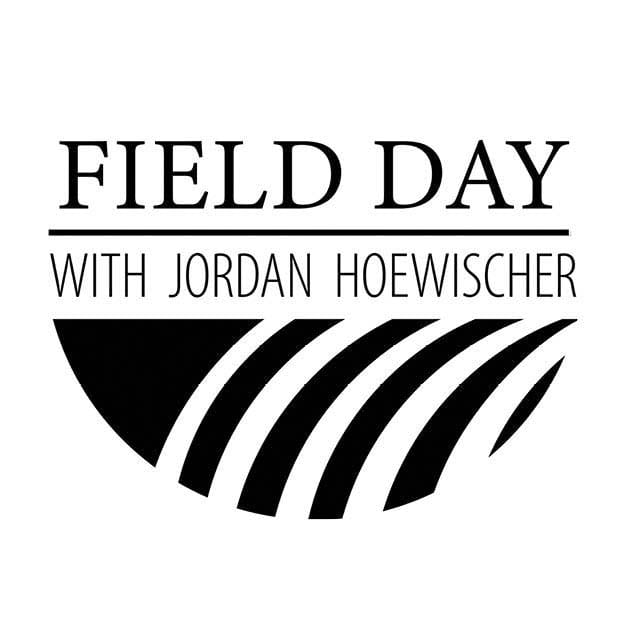 Farmers are the original environmentalists — taking care of the land that not only takes care of them and their families, but also helps feed the entire world. Sometimes there is a strained relationship between environmental groups and the agricultural community. However, in Ohio The Nature Conservancy and Farm Bureau have worked together on projects for a number of years, particularly in the Western Lake Erie Basin.
Farmers are the original environmentalists — taking care of the land that not only takes care of them and their families, but also helps feed the entire world. Sometimes there is a strained relationship between environmental groups and the agricultural community. However, in Ohio The Nature Conservancy and Farm Bureau have worked together on projects for a number of years, particularly in the Western Lake Erie Basin.
Jordan Hoewischer, Ohio Farm Bureau’s director of water quality and research, recently talked with Jessica D’Ambrosio of The Nature Conservancy on the Ohio Farm Bureau podcast Field Day with Jordan Hoewischer. They discussed the role of The Nature Conservancy and how the organization works with farmers to help make positive impacts on water quality.
Field Day with Jordan Hoewischer is an ongoing series of conversations with experts and leaders who are helping to shape and secure the future of Ohio’s ag industry for generations to come.
Following are some excerpts from the podcast.
Q: Can you give us an overview of The Nature Conservancy and how farmers and environmentalists can work together?
A: The Nature Conservancy is the largest conservation organization in the world with offices in all 50 states and in more than 60 countries across the world. It’s our mission to preserve the land and water upon which all life depends. We are probably most famously known for purchasing and protecting rare and unique places all over the world. In the Western Lake Erie Basin we are trying to protect an endangered mussel species in the St. Joseph River and we realized really early on that we weren’t able to do the work we needed to do to protect that species without involving the landowners, and the landowners in that watershed were predominantly farmers. Once we started talking to (farmers) instead of ignoring them or not incorporating them in the solutions, we found that they were many times more interested and more excited about what we were doing, sometimes more than we were.
Q: It’s easy to generalize a whole segment of people (farmers) as the main culprit in the water quality issue particularly as it pertains to Lake Erie. How can we focus on solutions and not so much who’s at fault or who’s to blame, because the issue is the issue?
A: I think that’s where The Nature Conservancy has had a lot of success in working with the ag community as we’ve sat down and we’ve said, “Hey let’s talk about how we can work on this together and what are real solutions you can implement as an industry rather than saying It’s your fault; you better fix it or else.” So, again, working to find real solutions that are practicable and that are cost-effective and make sense.
Feature Image: Jessica D’Ambrosio, Western Lake Erie project director for The Nature Conservancy, talks with students about farmers’ water quality efforts.


Members have three ways to apply: contacting a certified agent, calling 833-468-4280 or visiting ohiofarmbureauhealthplans.org.
Read More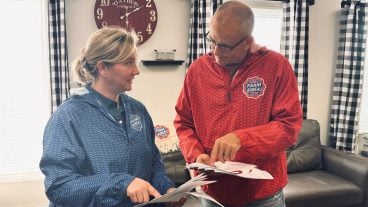
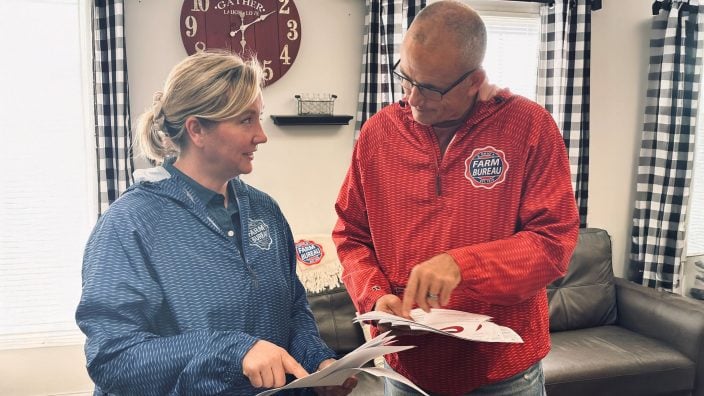
One of the best decisions Shannon and Heather Utter made a few years ago was looking into a Farm Bureau member benefit that has ended up saving them thousands of dollars on their energy bills.
Read More

Ryan Hiser has experienced first-hand the importance of having the opportunity to vote on issues that will affect his family operation and other farmers.
Read More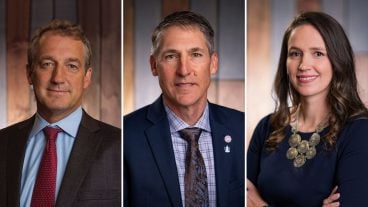
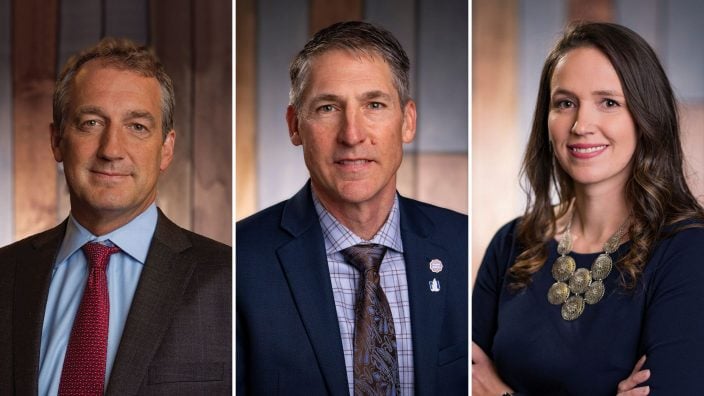
Bill Patterson, Cy Prettyman and Adele Flynn will continue to serve as officers for Ohio Farm Bureau Federation.
Read More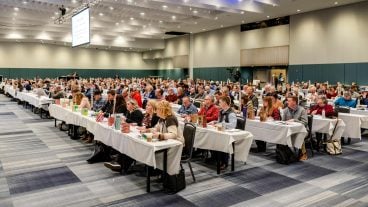
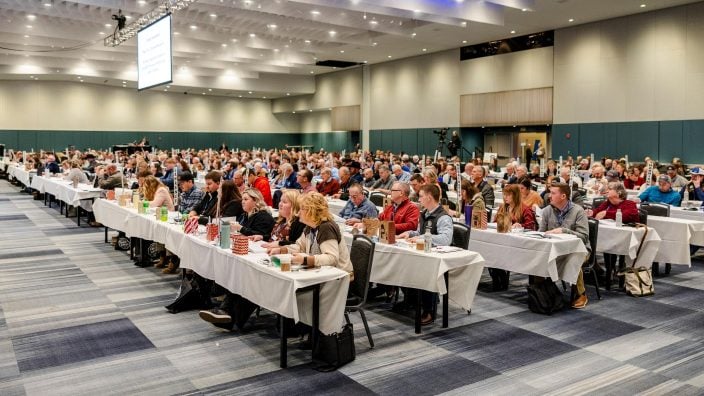
Delegates discussed many topics impacting agriculture including farmland preservation, local foods, and succession planning.
Read More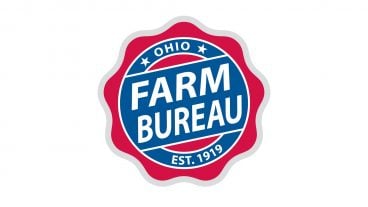
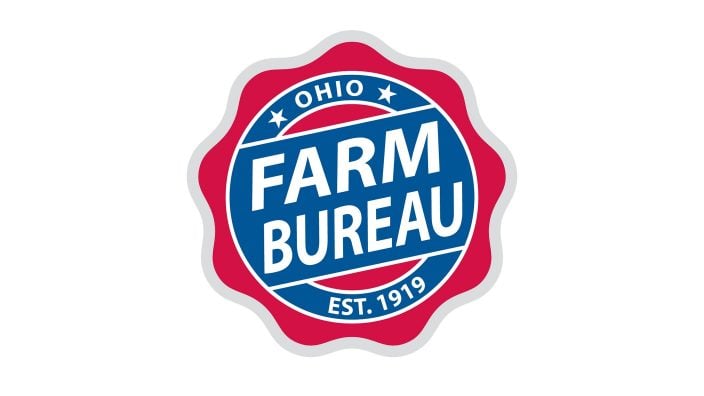
Twenty-six farmers govern the state’s largest farm and food organization.
Read More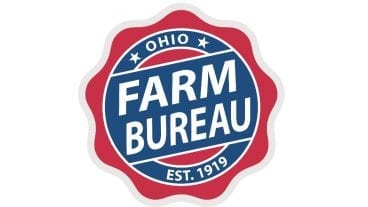
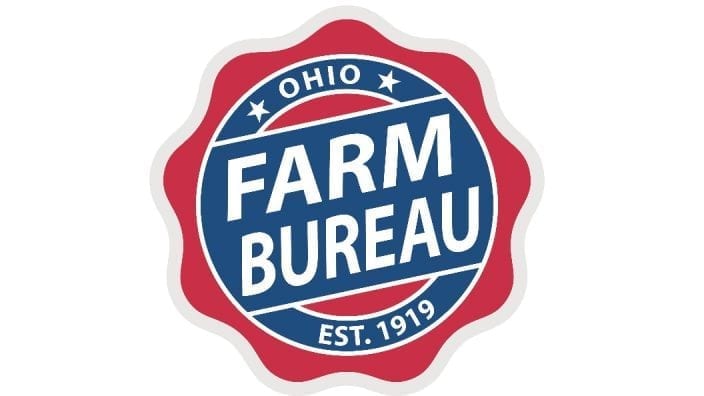
The 2025 recipients are Fred Cooke (posthumous) of Richland County, Marvin Dietsch of Williams County, Steven Knollman of Hamilton County and Michele Miller (posthumous) of Ottawa County.
Read More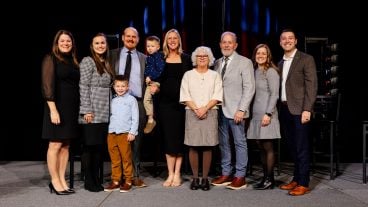
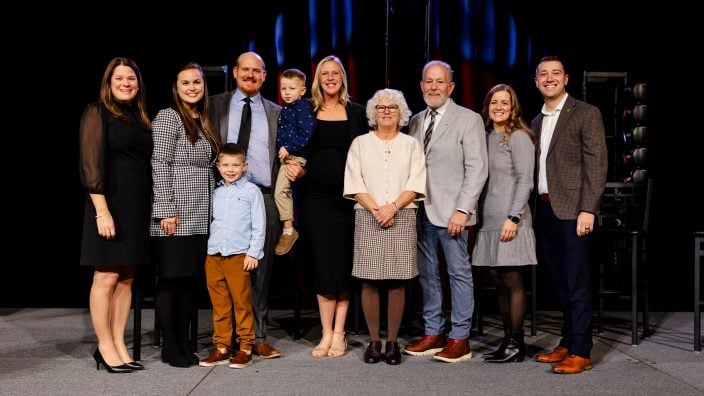
Nathan and Jill Parriman grow seasonal crops, including Christmas trees, pumpkins and cut flowers, providing U-cut experiences that invite customers to engage directly with agriculture.
Read More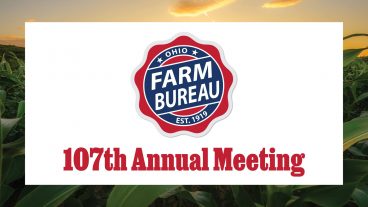
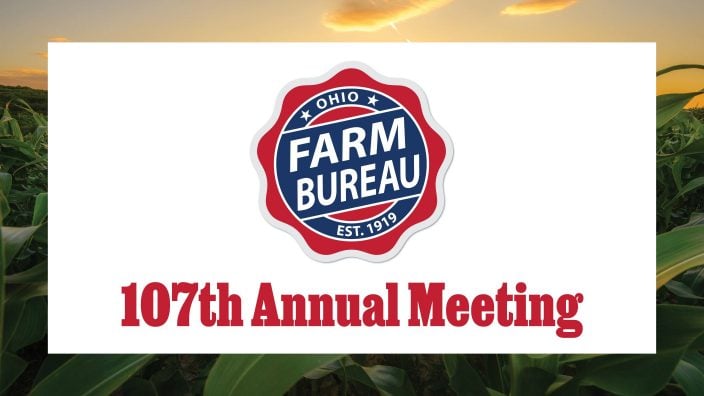
The 2025 Distinguished Service Award recipients are Craig Adams, Mike Townsley, and Kellogg Farms, Kurt Farms and Stateler Family Farms.
Read More

Ohio Farm Bureau Treasurer Adele Flynn participated in the meeting, representing Ohio farmers.
Read More